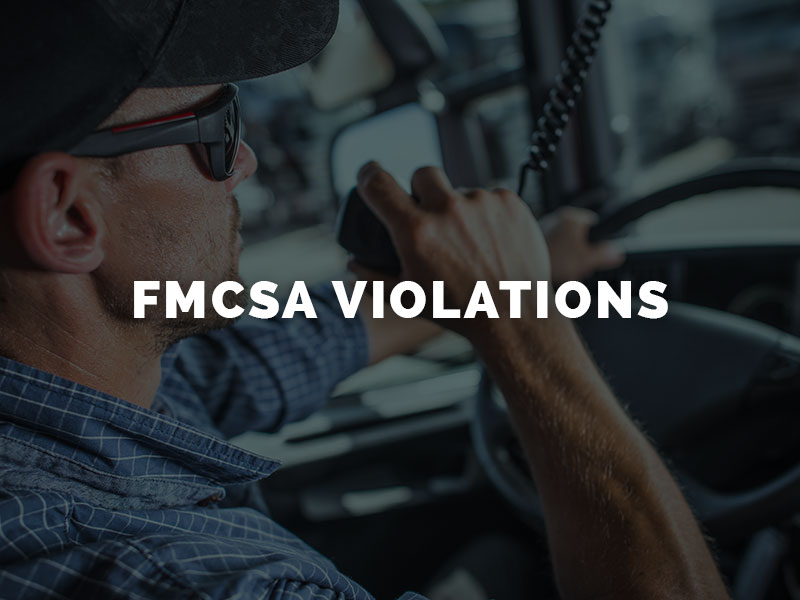The Federal Motor Carrier Safety Administration (FMCSA) is the organization responsible for overseeing the trucking industry in America. Efforts to increase the safety of commercial trucking via the Motor Carrier Safety Improvement Act of 1999 created the FMCSA. It is the authority in charge of creating safety programs, researching traffic accidents and patrolling motor carriers.
The FMCSA has hundreds of rules, regulations and requirements for trucking companies and their employees to follow. Breaking any of these rules could result in catastrophic truck accidents. If you were a victim of a truck accident due to a FMCSA violation, a Denver truck accident lawyer from our firm can help.

The FMCSA has hours of service rules to restrict how many hours commercial drivers may operate vehicles at a time. Driving for too long without taking rest breaks could significantly increase the risk of a trucker falling asleep behind the wheel. Drowsy driving is as dangerous as drunk driving, according to the National Safety Council. Hours of service restrictions can prevent drowsy driving accidents.
The hours of service regulation states that property-carrying drivers may not drive more than 11 hours after 10 consecutive hours off-duty, nor 14 consecutive hours after coming on duty. Commercial drivers may only operate their vehicles if no more than 8 hours have passed since their last 30-minute breaks. No driver may operate a vehicle after 60 hours on duty in 7 days or 70 hours in 8 days. Certain exceptions to these rules exist, but for the most part, property-carrying drivers must adhere to these restrictions.
Trucking companies are responsible for properly maintaining their trucks and fleets. The FMCSA’s truck maintenance requirements include regular inspections, records of equipment tests, ensuring adequate braking capabilities and checking that trucks do not exceed weight restrictions. Negligently failing to adhere to maintenance requirements could lead to a truck that is not roadworthy. Equipment breakdowns and part malfunctions could cause serious truck accidents.
It is also a trucking company’s responsibility to properly vet and conduct background checks on the drivers it hires. Trucking companies must maintain safe and appropriate hiring procedures to ensure the reasonable safety of their drivers. They must also engage in proper truck driver training before allowing drivers to transport loads alone. Truck drivers should carry valid and active commercial driver’s licenses, as well as receive additional training for the specific truck company. Hiring unqualified, dangerous, reckless or poorly trained applicants could lead to preventable collisions.
It is against Colorado state laws to operate any motor vehicle under the influence of drugs or with 0.08% blood alcohol concentration (BAC). A commercial driver cannot exceed 0.04% BAC. Federal laws also restrict the use of drugs and alcohol for commercial motorists. The FMCSA’s drug and alcohol rules require truck companies to test their drivers before hiring, at random, and after complaints, suspicions of driver intoxication or accidents. Breaching drug or alcohol rules could disqualify a driver from operating commercial vehicles.
If a truck driver has an illness, disease or condition that interferes with his or her ability to safely operate a commercial vehicle, the truck company should suspend or relieve the driver of his or her duties. One common illness that plagues truck drivers is sleep apnea. This sleep condition could impact a truck driver’s ability to get a good night’s rest, potentially contributing to drowsy driving collisions.
The FMCSA does not have regulations that specifically target drivers with sleep apnea, but it does state that someone with a medical condition that may interfere with the ability to safely operate a commercial vehicle cannot engage in interstate commerce as a driver. Trucking companies must require drivers with illnesses to seek treatment to regain their status as medically qualified to drive. Until a driver regains this status, the truck company should not allow the driver to return to work. Breaching any of the FMCSA’s rules and causing a truck accident could lead to truck company liability for damages.